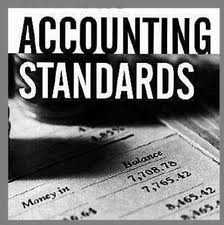Since 1977 after the government passed a statute, the Accounting Standard Board (ASB) a committee of the ICAI has been responsible for the formulation of accounting standards in India. Let us take a brief look at the functioning of the ASB and the procedure behind the formulation of accounting standards in India.
Accounting Standard Board
ICAI is the highest accounting body in the country. And the ASB is a committee of the ICAI. But to ensure maximum transparency and independence, the ASB is a completely independent body.
The ASB formulates all the accounting standards for the Indian companies. This process is fully transparent, very thorough and completely independent of any government involvement. While framing the standards the ASB will try and incorporate the IFRS and its principles in the Indian standards. While India does not plan to adopt the IFRS, this process will help the convergence of the two standards. So the ASB will modify the IFRS to suit the laws, customs and common usage in the country.
The ASB is composed of various members. There are representatives of industries like the FICCI and ASSOCHAM. There are also certain government officials, a few academics, and regulators from various departments. The idea is to make the ASB as inclusive and representative as possible.

Browse more Topics under Accounting Standards
Procedure for Formulation of Accounting Standards
Let us take a brief look at the procedure setting process that the ASB follows
- First, the ASB will identify areas where the formulation of accounting standards may be needed
- Then the ASB will constitute study groups and panels to discuss and study the topic at hand. Such panels will prepare a draft of the standards. The draft normally includes the definition of important terms, the objective of the standard, its scope, measurement principles and the representation of said data in the financial statements.
- The ASB then carries out deliberations of the said draft of the standard. If necessary changes and revisions are made.
- Then this preliminary draft is circulated to all concerned authorities. This will generally include the members of the ICAI, and any other concerned authority like the Department of Company Affairs (DCA), the SEBI, the CBDT, Standing Conference of Public Enterprises (SCPE), Comptroller and Auditor General of India etc. These members and departments are invited to give their comments.
- Then the ASB arranges meetings with these representatives to discuss their views and concerns about the draft and its provisions
- The exposure draft is then finalized and presented to the public for their review and comments
- The comments by the public on the exposure draft will be reviewed. Then a final draft will be prepared for the review and consideration of the ICAI
- The Council of the ICAI will then review and consider the final draft of the standard. If necessary they may suggest a few modifications.
- Finally, the Accounting Standard is issued. In the case of standard for non-corporate entities, the ICAI will issue the standard. And if the relevant subject relates to a corporate entity the Central Government will issue the standard.
Solved Question for You
Q: What are the functions of the Accounting Standard Board?
Ans: Some of the functions of the ASB are as follows,
- Point out the areas for which Accounting Standards should be developed
- Formulate such standards according to the procedure
- Review the accounting standards at regular intervals and revise them if necessary
- Provide interpretation and guidance notes from time to time






“Accounting principles are the rules and guidelines that companies must follow when reporting financial data” comment?